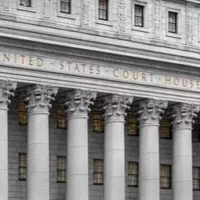What Does Discovery Mean?

How Can Discovery Impact Your Case?
Discovery is more than just a report or a statement, it is a process. Typically, after a person is arrested for an offense an attorney files a not guilty plea and then files a demand or notice of intent to participate in discovery. The filing of a demand or notice of discovery triggers a period in which the State needs to provide defense counsel evidence they have against the person accused. Florida Rules of Criminal Procedure 3.220 governs the rules of discovery and sets forth a time period for the State to provide the discovery documents within 15 days. The typical discovery items that are furnished by the State are listed in a discovery exhibit. Included in the exhibit are a list of witnesses along with the category designation.
Witness Classification in Discovery
There are three different categories that a witness may fall into and each category designates the general involvement in the case.
- A category A witness could be an eye witness, investigating officers or an expert witness.
- A category C witness is one that performed ministerial functions, like a supervisory officer who simply just approved the arrest report but was not present for anything during the arrest or investigation.
- A category B witness is one that does not fit in the A or C category.
Discovery also includes written statements by witnesses, reports from officers, information from a confidential informant, videos, audio recordings, 911 calls, photos, and much more. The discovery process also allows for a person accused with a certain offense to conduct depositions of the State witnesses. If a person is accused of a felony-level offense, they may take a deposition of a category A witness without permission of the court. However, to take depositions of a category B witness a defendant must show good cause on why they need to depose such a witness for a court to grant them leave to conduct the deposition. Depositions cannot be taken in a case where a person is only charged with a misdemeanor offense of a criminal traffic offense unless they are able to show good cause to the court.
Discovery and Information
When considering whether good cause exists the court will consider the complexity of the testimony of the witness (e.g. are they an expert), the opportunities available to defense counsel to obtain the information sought by a deposition, as well as the potential consequences to the defendant. One thing that is important to understand is that the discovery process is a two-way street. Once a defendant elects to participate in the discovery process, the defense has the same obligations to provide information to the State regarding potential witnesses and tangible evidence. The State would also be entitled to depose the witnesses listed by the defense subject to the same restriction as the defense which are listed above. The discovery process is also a continuing duty to disclose information meaning that as the pre-trial process plays out and depositions are conducted, any new information discovered would need to be disclosed to the opposite party which is typically done as a supplemental discovery exhibit. There are many additional rules and nuances that apply to the discovery process which are important to know to enable a defendant to gain as much information as possible.
How can we help you today?
At Meldon Law we have the knowledge and experience to effectively participate in the discovery process to acquire the information needed to properly defend your case. For more information, give us a call at 800-373-8000 or click here to submit an inquiry. We have offices in Gainesville, Ocala, and Ft. Lauderdale but are able to serve you throughout the state of Florida.




